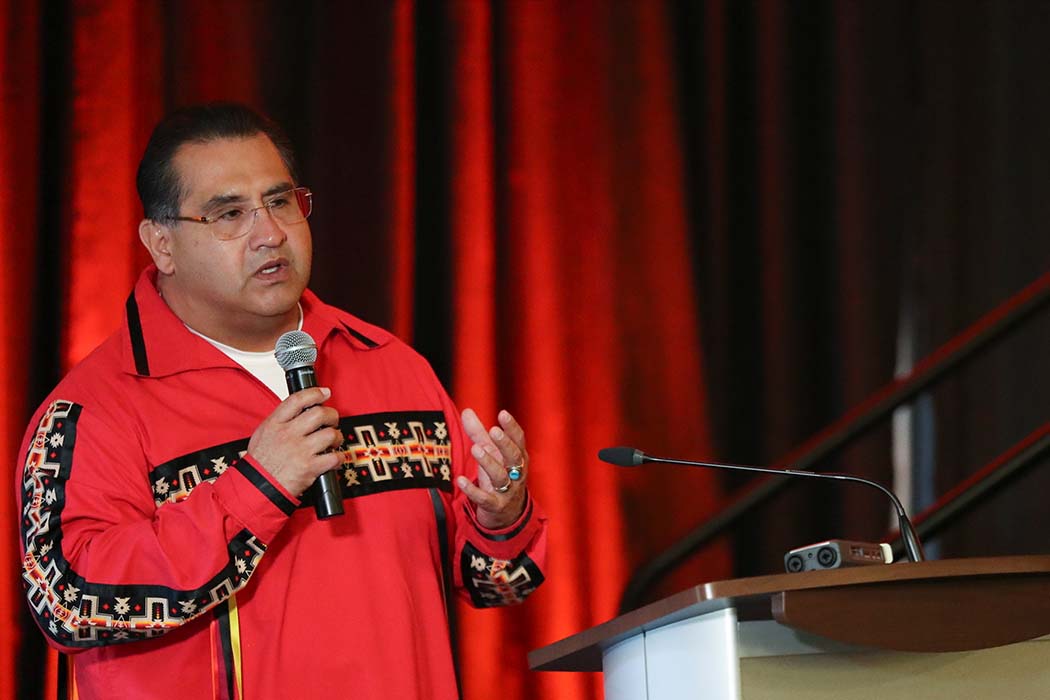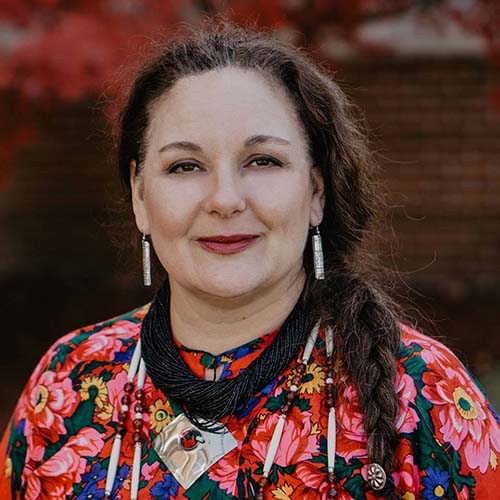
- Details
- By Nanette Kelley
SACRAMENTO, Calif. — Officials at the University of California (UC) were questioned last week on their failure to comply with state and federal laws requiring the repatriation of California Native American remains and cultural objects.
On Aug. 11, the California Assembly Select Committee on Native American Affairs and the Joint Legislative Audit Committee held a hearing to explore the state auditor’s June 2020 report, titled “Native American Graves Protection and Repatriation Act: The University of California Is Not Adequately Overseeing Its Return of Native American Remains and Artifacts,” detailing UC’s delays and inadequacies to return remains and artifacts to California tribes.
Sponsored by California Assemblymember Todd Gloria (Tlingit Haida Indian Tribes of Alaska), bill AB-2836, titled “Native Americans: Repatriation (2017-2018)” requires the UC system to update their repatriation process and policies. In addition, beginning in 2019, it required the California State Auditor to conduct an audit of UC’s compliance with federal and California acts, and to report its findings to the Legislature and all other appropriate entities. A sample three of the ten UC universities were audited, and the results were dissected during Tuesday’s hearing.
After a land acknowledgement to the Nisenan and Miwok, the first peoples of the Sacramento area, California Assemblymember James C. Ramos (Serrano, Cahuilla), chair of the Select Committee on Native American Affairs, opened the hearing by describing the lack of sufficient oversight in UC repatriation policy and the need to explore ways to remedy the “troubling findings” in order to expedite the return of remains.
“Tribes are anxious to rebury their ancestors in the state of California,” Ramos said.
“Throughout the years, repatriation has become a lengthy and confusing process despite various efforts to close the gap between tribes and their associated items, success and reclamation by tribes was minimal and continues to be a challenge,” he said. “The information, as I understand it, shows there is more work that must be done. That’s why this afternoon’s hearing is so critical.”
Assemblymember Rudy Salas, chair of the Joint Legislative Audit Committee, stressed concern over UC’s treatment of the remains and funerary objects.
“These are not cold relics that some archaeologist found and now need to be dealt with as the law provides,” Salas said. “These ancestral remains and their belongings are warm, meaningful sacred connections to heritage and family members for many individuals that are joining us on today’s call.”
There are currently more than 500,000 Native American remains in the UC system.
California State Auditor Elaine Howle testified that while accessing UC’s processes for working with tribes to repatriate, they found inconsistencies among the three campuses visited, including UCLA, UC Davis and UC Berkeley.
“It’s very frustrating for tribes in dealing with these campuses because one campus may require a certain level of evidence to confirm that is the appropriate tribe for those remains, and another campus would require a much lower level of evidence,” she said, and noted that UC has yet to put a repatriation policy in place, though this is a legislated requirement.
UC was found to have missed deadlines to create a policy that would identify consistent processes and procedures all the campuses should follow, and missed their draft policy deadlines. They also did not allow tribes ample opportunity to provide input with respect to the policy.
“Each campus should have a committee that’s comprised of university officials, but should have equal representation of tribal members,” said Howle, who explained that when they looked at the three campuses, they found that not one committee demonstrated the equal mandated tribal committee representation; there was far more university representation than tribal representation.
Senior Auditor Jim Adams pointed out inconsistencies in the draft policy, such as UC Berkeley requiring affirmation in writing by all tribes expressing interest, which added about 18 months to the process. In contrast, UC Davis, which made a good effort to follow up with tribes, went ahead with repatriation after feedback from a majority of tribes.
Adams said that UC’s new interim policy offers very specific guidance as to what that consultation process should be and imposes a 60-day deadline on that consultation. “That should address those inconsistencies we identified across the campuses,” he said.
Michael Brown, provost and executive vice president of Academic Affairs for the University of California, did not contest the auditor’s findings.
“We really took their comments and concerns seriously. We agreed with all of the recommendations,” he said, adding that input from the tribes and tribal advocates included 1,200 written comments, and other comments recorded during 25 hours of phone conversations with "various" tribes in California.
Brown also acknowledged that a tribe’s knowledge is sometimes the only line of evidence available to establish cultural affiliation, a procedure now explicitly articulated in the interim policy, which is information that can be used to determine repatriation decisions.
“Tribal oral histories and tribal forces of evidence are to be respected and valued,” he said.
Each assemblymember who questioned Brown voiced concern for the inconsistent and overtly lengthy repatriation process, and the consistent lack of tribal representation.
“California has more people of Native American heritage than any other state in the country, approximately 362,801. We have 108 federally recognized tribes and over 20 percent of the tribes in the United States, so I want to hear the university’s perspective on why these committees do not have the required number of California tribes,” said Assemblymember Salas.
Tribal leaders attended the hearing to offer their personal experiences and perspectives on the audit and repatriations. Kenneth Kahn, Chairman of the Santa Ynez Band of Chumash Indians, said the audit report confirms the continuous struggle California Indians have had regarding repatriation and funerary objects, and that they are dependent upon a completely inconsistent process.
“Properly reburying our ancestors is a top priority,” Kahn said. “We must lay them to rest so they can thrive in the spirit world. In the past, we had to defer repatriations if we did not have a reburial site.”
Charlene Nijmeh, Chairwoman of the Muwekma Ohlone Tribe, spoke of the federal government’s neglect in recognizing her people, their wrongful tribal designation as an “extinct” people, and the “attitude of white supremacy” that shaped her tribe’s relationships with archaeologists and the UC system over the past century as they attempt to protect their ancestors’ remains.
“The University of California has been at worst destructive and actively dismissive of our tribal history and long-term occupation of this land and struggles in areas of repatriation,” she said.
When questioned, Brown was adamant that by the end of November all UC campus committees would have an adequate number of Native American members, and there will be a permanent repatriation policy in place by the end of the year.
A second UC audit regarding repatriation policy and process is mandated for 2021.
“The whole reason for this hearing was to bring all these topics to the forefront so as legislators we can look forward to what we need to do in January,” said Ramos, a former chairman of the San Manuel Indian Reservation and the first California Indian to be elected to the California State Assembly.
Ramos was concerned that less than half of UC campuses had been included in the audit. “Imagine if they audited the whole UC system,” he said.
“It can’t be just a one-time topic. We owe it to the ancestors and owe it to who we are, and it starts with honoring our people,” Ramos added, referencing the fact that more than 500,000 remains have not yet been returned to Indigenous peoples.
He explained that the issues discussed in the hearing are very real and alive to him, and to all presenters from California tribes. So much so that a few weeks prior to the hearing, when they were on session break, he personally conducted two reburials, one near the San Bernardino Mountains and one in Edwards Airforce Base.
Ramos described the burials during the hearing, “so that others in the legislature understand that these aren’t just things to talk about,” he said. “We actually live it.”
More Stories Like This
Native News Weekly (August 25, 2024): D.C. BriefsNavajo Nation Mourns the Passing of Former Vice President Rex Lee Jim
Deb Haaland Earns Endorsement From Communications Workers of America Local 7076
University Soccer Standout Leads by Example
Two Native Americans Named to Democratic Congressional Campaign Committee's“Red to Blue” Program
Help us defend tribal sovereignty.
At Native News Online, our mission is rooted in telling the stories that strengthen sovereignty and uplift Indigenous voices — not just at year’s end, but every single day.
Because of your generosity last year, we were able to keep our reporters on the ground in tribal communities, at national gatherings and in the halls of Congress — covering the issues that matter most to Indian Country: sovereignty, culture, education, health and economic opportunity.
That support sustained us through a tough year in 2025. Now, as we look to the year ahead, we need your help right now to ensure warrior journalism remains strong — reporting that defends tribal sovereignty, amplifies Native truth, and holds power accountable.
 The stakes couldn't be higher. Your support keeps Native voices heard, Native stories told and Native sovereignty defended.
The stakes couldn't be higher. Your support keeps Native voices heard, Native stories told and Native sovereignty defended.
Stand with Warrior Journalism today.
Levi Rickert (Potawatomi), Editor & Publisher

